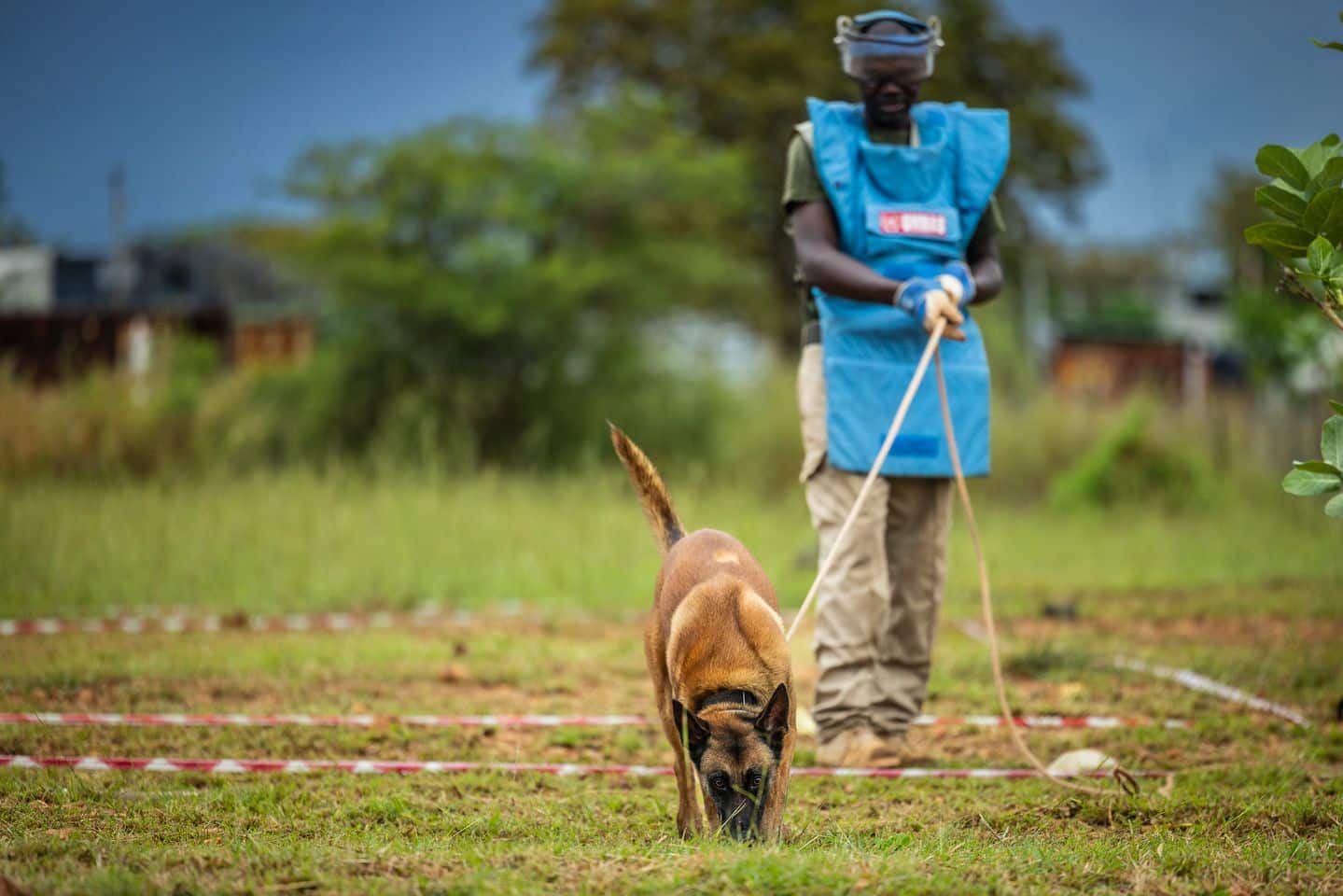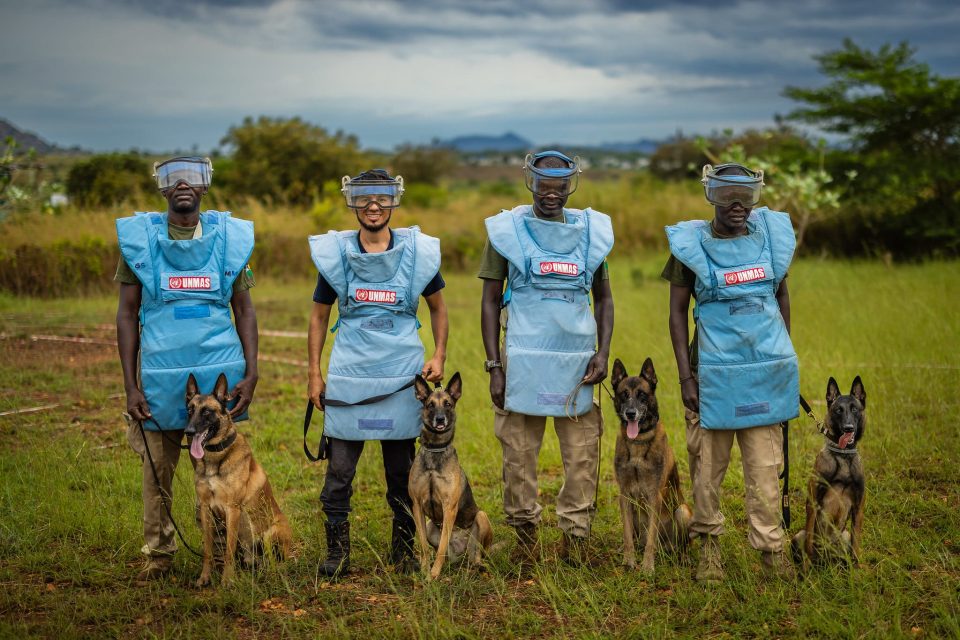Background
South Sudan, the world’s youngest country, has been plagued by decades of conflict, leaving a devastating legacy of landmines, cluster munitions, and unexploded bombs. As of the end of 2022, the Mine Action Review estimated that South Sudan had a total of 112 minefields, of which 65 were confirmed hazardous areas (CHAs) and 47 were suspected hazardous areas (SHAs), covering a total area of just under 5.42 km2. This contamination hinders access to vital resources and slows the nation’s recovery. The presence of these explosive remnants of war prevents the safe return of internally displaced persons (IDP) and obstructs vital development and reconstruction efforts.
APOPO in South Sudan
In 2017, the United Nations Mine Action Service (UNMAS) wanted to enhance its landmine clearance capacity with Mine Detection Dogs to expedite the clearance of essential roads across South Sudan. Surveying and clearing roads, including opening new paths, is a critical activity for the UN, as it facilitates the mobilization of humanitarian aid to remote areas and supports the return of internally displaced people (IDP) to their homes.
To meet this urgent need, APOPO partnered with The Development Initiative (TDI) one of the key implementers of UNMAS projects, to build a dedicated Mine Detection Dog capacity aimed at accelerating road surveys and clearance. In October 2020, APOPO deployed specially trained Technical Survey Dogs (TSDs) and to enhance the management of the dog components in South Sudan. This expansion increased efficiency, productivity, and pace in road surveys, ultimately contributing to the safe and swift rehabilitation of the country’s infrastructure.
In 2022, APOPO in South Sudan embarked on a new chapter working in a new partnership with G4S Risk Management Group.
Technical Survey Dogs (TSD)

APOPO’s TSDs are specially trained to detect explosives with remarkable speed and accuracy, drastically improving the efficiency of land release operations. On average, these dogs increase clearance rates by 400% compared to traditional manual demining methods. The dogs work by detecting the scent of explosives, allowing deminers to focus on the most likely contaminated areas, thereby speeding up the process and ensuring more land is returned to safe use in a shorter time.
At APOPO, we utilize specialized equipment to track the performance of our dogs as they search for explosives. Our Technical Survey Dogs wear a Garmin T5 dog collar, paired with an Astro 430 tracker, which helps our team monitor their movements accurately. This setup is crucial for measuring the area the dog surveys and for locating them within a 9-mile radius for safety purposes. The Garmin T5 Dog Collar, equipped with high-sensitivity GPS, allows us to track where the dog is and where they have been. This helps us ensure that the dogs cover all intended areas during a survey.


















